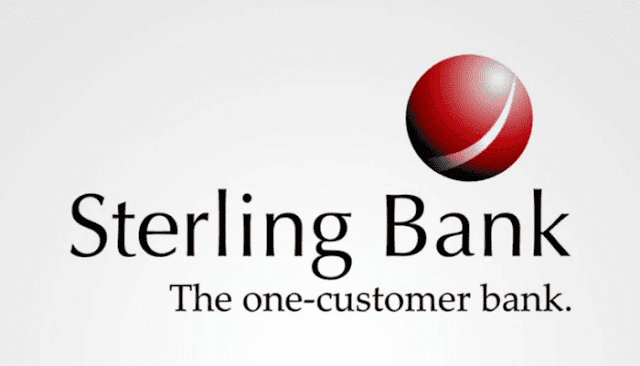In a high-profile legal battle that has sent shockwaves through Nigeria’s financial sector, Miden Systems Limited, an engineering, maritime, and consultancy firm, has initiated legal proceedings against Sterling Bank Limited, its Chief Executive Officer, Sterling Financial Holdings Company Plc, and four other defendants. The company accuses the defendants of conspiracy, forgery, criminal breach of trust, and the large-scale misappropriation of funds exceeding $200 million. The case, filed before Magistrate Njideka Duru at the Chief Magistrate’s Court in Wuse Zone II, Abuja, represents a significant escalation in Miden Systems’ efforts to seek justice and accountability for what it describes as systemic financial misconduct by the bank and its leadership.
The lawsuit, detailed in a comprehensive 29-page complaint, alleges a series of fraudulent activities orchestrated by Sterling Bank and its executives, including the creation of unauthorized accounts, forged signatures, and illicit transactions that have caused substantial financial losses for Miden Systems. The case was scheduled for mention on Monday, August 25, 2025, but proceedings were postponed due to the ongoing Nigerian Bar Association (NBA) conference in Enugu. The matter has now been adjourned to September 10, 2025, setting the stage for what promises to be a closely watched legal confrontation with far-reaching implications for Nigeria’s banking industry.
Allegations of Fraud and Financial Misconduct
Miden Systems Limited, represented by senior advocate Louis Alozie (SAN), has accused Sterling Bank and its leadership of engaging in a deliberate and sophisticated scheme to defraud the company. According to the court documents, the defendants allegedly created multiple fraudulent accounts in Miden’s name and siphoned off over $200 million through unauthorized transactions. These transactions, the company claims, were executed without its knowledge or consent, resulting in significant and unexplained debits from its corporate account.
The complaint paints a damning picture of Sterling Bank’s operations, alleging that the bank systematically denied Miden access to critical financial records, including account statements, in violation of standard banking practices. The firm further claims that the bank placed liens on all its accounts without prior notice or formal demand, effectively locking Miden out of its own funds. This, Miden argues, was a calculated move to obscure irregular transactions and prevent the company from verifying its account balance or loan status.
One of the most striking allegations in the complaint involves the handling of foreign currency remittances sent to Miden’s account. The company claims that these remittances were unlawfully withheld and traded by Sterling Bank rather than being applied to settle outstanding loan obligations. The complaint provides a specific example, noting that at a time when the exchange rate was approximately N150 to the dollar (with a market rate of N198), a principal of Miden Systems remitted revenues in dollars to its account. The bank allegedly stockpiled over N2 billion in Miden’s account after taking its spread. However, during this period, the naira depreciated significantly to around N500 to the dollar. Under pressure, the bank reportedly sold the stockpiled funds at the inflated exchange rate, rendering the original value of the remittance nearly worthless. This, Miden argues, represents a blatant act of financial manipulation that caused substantial losses to the company.
Unauthorized Loans and Forged Documents
Perhaps the most egregious allegation in the lawsuit is the claim that Sterling Bank booked an unsolicited $30 million loan to Miden Systems’ account in October 2017, despite the company having cleared all its obligations to the bank by July of that year. According to the complaint, the bank issued an offer letter for the loan, purportedly authorized by Miden’s Board of Directors on the same day, with approval from Sterling Bank’s board also granted concurrently. The following day, over $1 million was disbursed to an individual identified only as “AA,” and two days later, more than $29 million was transferred to the same individual. Miden Systems contends that this pattern of rapid, large-scale disbursements continued unchecked, with no evidence that the company applied for or accepted the loan.
The company further alleges that the signatures on the loan acceptance documents were forged, calling into question the integrity of Sterling Bank’s internal processes. Miden insists that it had no knowledge of the loan and did not authorize any of the transactions associated with it. This alleged fraud, the company argues, represents a criminal breach of trust and a deliberate attempt to exploit its financial position for the benefit of unknown parties.
In another alarming claim, Miden Systems accuses Sterling Bank of booking a $3 million loan to Chasewood Limited, a company that reportedly disavowed any knowledge of the facility. The loan was then transferred to Miden’s account, with Sterling Bank asserting that Chasewood was a sister company. Miden, however, maintains that Chasewood Limited is an entirely independent entity with no ownership links to the firm. This alleged misrepresentation further fuels Miden’s claims of fraudulent practices by the bank.
The complaint also references an alleged loan from Afrexim Bank, which Sterling Bank purportedly secured using forged signatures of individuals unknown to Miden Systems. Additionally, the company accuses the bank of opening accounts in its name using an address at No. 10 Goba Close, Wuse II, Abuja, which Miden claims to have no connection with. These allegations point to a pattern of unauthorized and deceptive actions that, according to Miden, were designed to obscure the true nature of the bank’s dealings with its funds.
Denial of Access and Obstruction
Miden Systems’ complaint details a series of actions by Sterling Bank that allegedly prevented the company from accessing its own financial resources and records. The firm claims it was denied cheque books and access to its internet banking platform, which it describes as a deliberate strategy to conceal irregular transactions. Without access to these critical tools, Miden was unable to monitor its account balance, verify transactions, or assess its loan status, leaving it vulnerable to further financial manipulation.
The company argues that these actions were not isolated incidents but part of a broader scheme to obscure the bank’s activities and prevent Miden from uncovering the alleged fraud. By placing liens on Miden’s accounts without notice or formal demand, Sterling Bank effectively immobilized the company’s financial operations, causing significant disruptions to its business activities. These measures, Miden contends, were taken in bad faith and constitute a criminal breach of trust.
Efforts to Seek Redress
Frustrated by Sterling Bank’s alleged refusal to address its concerns, Miden Systems took its case to the House of Representatives Committee on Public Petitions. The committee, after reviewing the company’s allegations, reportedly found merit in the claims and referred the matter to the Inspector General of Police for further investigation. According to Miden, a subsequent investigation by the Nigeria Police culminated in a February 2025 report that indicted the defendants, lending further weight to the company’s accusations.
The referral to the police and the subsequent legal action before the Chief Magistrate’s Court represent Miden Systems’ determination to hold Sterling Bank and its executives accountable. The company’s decision to pursue both civil and criminal remedies underscores the severity of the alleged offenses and the significant financial losses it claims to have suffered. By taking the matter to court, Miden aims to recover its funds, expose the alleged wrongdoing, and ensure that those responsible face the full consequences of their actions.
Broader Implications for Nigeria’s Banking Sector
The lawsuit against Sterling Bank and its executives has far-reaching implications for Nigeria’s banking industry, raising questions about transparency, accountability, and corporate governance. The allegations of forgery, conspiracy, and large-scale misappropriation of funds strike at the heart of public trust in financial institutions. If proven, the claims could expose systemic vulnerabilities in the banking sector, particularly in the areas of account management, loan processing, and fraud prevention.
The case also highlights the challenges faced by businesses operating in Nigeria’s complex financial environment. For companies like Miden Systems, which rely on banks to manage their financial operations, allegations of misconduct by a trusted institution can have devastating consequences. The reported denial of access to account statements and banking platforms, coupled with unauthorized transactions, underscores the need for stronger regulatory oversight to protect customers from potential abuses.
The involvement of senior executives, including the Chief Executive Officer of Sterling Bank, adds another layer of complexity to the case. The accusations against high-ranking officials suggest that the alleged misconduct may have been facilitated or overlooked at the highest levels of the organization. This raises critical questions about the governance structures within Sterling Bank and the mechanisms in place to prevent and detect fraudulent activities.
Public and Industry Response
The news of Miden Systems’ lawsuit has sparked significant interest among stakeholders in Nigeria’s business and financial communities. Industry observers have noted that the case could set a precedent for how disputes between corporate clients and banks are resolved, particularly in cases involving allegations of fraud and mismanagement. The outcome of the case is likely to influence public perceptions of Sterling Bank and could have broader implications for the reputation of Nigeria’s banking sector.
For Miden Systems, the lawsuit represents a critical step in its fight for justice and financial restitution. The company’s decision to pursue legal action, despite the challenges of litigating against a major financial institution, demonstrates its resolve to hold Sterling Bank accountable. The involvement of a senior advocate like Louis Alozie signals the seriousness of Miden’s legal strategy and its determination to present a robust case in court.
The adjournment of the case to September 10, 2025, due to the NBA conference in Enugu, has delayed the legal proceedings, but it has also provided both parties with additional time to prepare their arguments. As the court date approaches, all eyes will be on the Chief Magistrate’s Court in Wuse Zone II, where the case is expected to shed light on the complex and contentious issues raised in Miden’s complaint.
A Call for Accountability and Reform
The allegations leveled by Miden Systems Limited against Sterling Bank and its executives underscore the importance of accountability and transparency in Nigeria’s financial sector. The reported scale of the alleged fraud—over $200 million in misappropriated funds—highlights the need for robust safeguards to protect corporate clients from financial misconduct. The case also raises broader questions about the role of regulatory bodies, such as the Central Bank of Nigeria (CBN), in overseeing banking operations and ensuring compliance with ethical and legal standards.
For Miden Systems, the lawsuit is not just about recovering financial losses but also about seeking justice for what it describes as a deliberate and systemic betrayal of trust. The company’s allegations of forgery, unauthorized loans, and restricted access to its accounts paint a troubling picture of a banking relationship gone awry. By pursuing legal action, Miden hopes to expose the alleged wrongdoing and secure redress for the damages it has suffered.
As the case moves forward, it is likely to draw significant attention from regulators, policymakers, and the public. The outcome could prompt reforms aimed at strengthening oversight of financial institutions and improving protections for corporate clients. For now, Miden Systems’ legal battle serves as a stark reminder of the challenges businesses face in navigating Nigeria’s financial landscape and the critical importance of holding powerful institutions accountable for their actions.
In conclusion, the lawsuit filed by Miden Systems Limited against Sterling Bank and its executives is a landmark case that could reshape the dynamics of corporate banking in Nigeria. The allegations of conspiracy, forgery, and misappropriation of funds raise serious questions about trust, transparency, and accountability in the financial sector. As the case progresses, it will serve as a test of Nigeria’s legal and regulatory systems and their ability to deliver justice in complex financial disputes. For Miden Systems, the fight is not just for financial restitution but for the restoration of trust in a system that it claims has failed to uphold its obligations.








